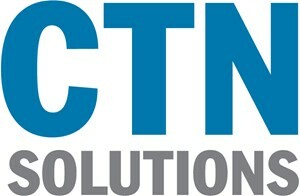The healthcare industry is undergoing a profound transformation, fueled by advancements in technology, evolving patient expectations, and the increasing need for streamlined operations. In this dynamic landscape, Managed Service Providers (MSPs) are emerging as key partners for healthcare organizations, delivering comprehensive IT solutions and driving growth. Recent reports indicate a significant rise in the adoption of MSPs within the healthcare sector, showcasing their invaluable role in revolutionizing healthcare delivery. Let’s delve into the reasons behind this surge and the benefits MSPs bring to the table.
- Cost- Effective IT Management: MSPs offer cost-effective solutions by providing scalable IT services tailored to the unique needs of healthcare entities. By leveraging economies of scale, MSPs can deliver robust infrastructure, network management, and support services, reducing capital expenses and ensuring predictable IT expenditures.
- Enhanced Cybersecurity: MSPs specialize in safeguarding healthcare organizations against cyberattacks, data breaches, and compliance violations. Their expertise in security technologies, proactive monitoring, and incident response helps protect patient data, ensuring compliance with HIPAA and other regulatory requirements.
- Streamlined Operations: MSPs offer integrated solutions that streamline operations, enhance productivity, and enable interoperability. From EHR implementation and optimization to telehealth infrastructure support, MSPs empower healthcare organizations to leverage technology efficiently and provide quality care while reducing administrative burdens.
- Scalable Solutions for Growth: MSPs provide the agility required to scale operations, supporting growth initiatives seamlessly. Whether it’s setting up new clinics, deploying cloud-based solutions, or managing remote workforce technologies, MSPs offer flexible solutions that align with organizational expansion strategies, ensuring consistent service delivery and improved patient outcomes.
- Focus on Patient-Centric Care: MSPs play a pivotal role in enabling healthcare providers to prioritize patient-centric care. By managing IT infrastructure and support services, MSPs alleviate the burden on internal IT teams, allowing healthcare professionals to dedicate more time to patient care. MSPs ensure system reliability, data accessibility, and interoperability, empowering healthcare organizations to deliver personalized, efficient, and seamless experiences to patients.
Managed Service Providers have become catalysts for growth within the healthcare industry, addressing the unique IT challenges faced by healthcare organizations. The growing adoption of MSPs in healthcare reflects their ability to drive innovation, improve efficiencies, and enhance patient outcomes. Healthcare organizations that partner with MSPs position themselves for success in an ever-evolving healthcare landscape.

Source; SmarterMSP
